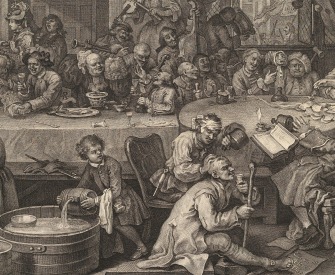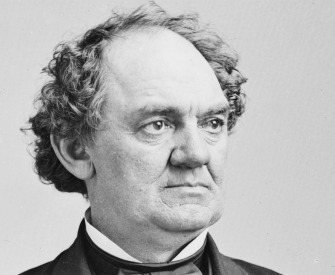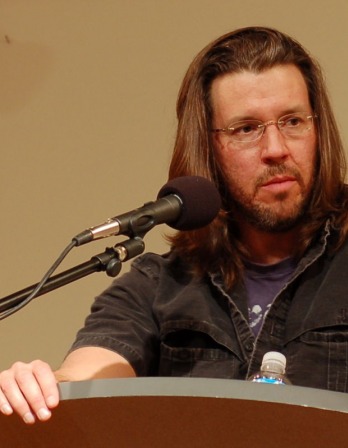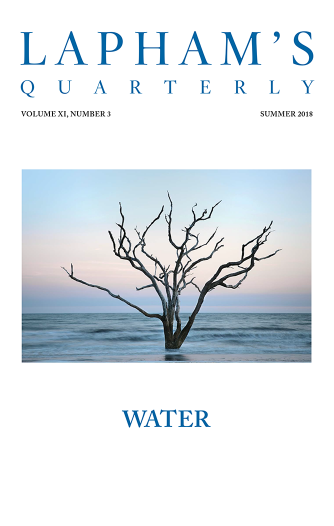The Chairman: State your full name for the record.
Mr. Jurist: Edward Jurist.
The Chairman: What is your business or profession?
Mr. Jurist: I am a freelance television writer and producer.
The Chairman: Mr. Lishman, you may proceed.
Mr. Lishman: Mr. Jurist, you were the producer of the television show Dotto?
Mr. Jurist: Yes, sir.
Mr. Lishman: For how long a period were you the producer of the show Dotto?
Mr. Jurist: From the time it went on until the time it went off.
Mr. Lishman: Had you been the producer of other TV quiz shows?
Mr. Jurist: Yes, sir.
Mr. Lishman: Would you please name these other shows?
Mr. Jurist: Quiz Kids, Giant Step, $64,000 Challenge. I think that is it.
Mr. Lishman: Was assistance ever given to contestants in these shows in advance of their reproduction on the air?
Mr. Jurist: We will have to go into the word “assistance.”
Mr. Lishman: Were the contestants given the questions and answers in advance of the program?
Mr. Jurist: Not to my knowledge.
Mr. Lishman: What type of assistance was given?
Mr. Jurist: May I start from a beginning point?
Mr. Lishman: Yes sir.
Mr. Jurist: Every effort was made to control the shows.
Mr. Lishman: What do you mean by “control”?
Mr. Jurist: Everything that happened on the show happened according to the desires of the producer. That was the aim. It mostly succeeded. Sometimes it failed. Primary procedure was to find out what people knew and frame questions accordingly.
The second procedure, to “inculcate,” is a word I like to use, the people with information you thought they ought to have in such a way that they ideally were not aware you were doing it. That would be, I would say, the extent on those other shows.
Mr. Lishman: On the $64,000 Challenge, which type of control was used there?
Mr. Jurist: There was probably less need for control there than on most other shows, except the $64,000 Question. I take those two shows together, for the obvious reason that the contestants were highly qualified experts in a very narrow field, and anybody can study Napoleon and really digest almost everything about Napoleon in very short order. It is not the same as knowing everything about everything. So there it would be a question of qualifying them in the first place, which was a primary step on those shows. Then, finding out what areas they were strong in and what areas they were weak in.
That would sometimes be enough. Most times enough, I would say, if you had a really qualified expert—and in most cases they did.
Mr. Lishman: In other words, you had an applicant that you would screen to find out whether he would be qualified, and you would go into the category—American history, let us say—you would proceed to give him a very thorough examination in the American history, during the course of which you would ask numerous questions which might subsequently be telescoped together or rearranged in such a way that he had been furnished the information in advance of the actual question that was later asked on the show.
Mr. Jurist: Actually, you are distorting what I said.
Mr. Lishman: Will you explain it, then?
Mr. Jurist: If you ask a person a question and he gives you an answer, you have not given him an answer. Am I correct?
Mr. Lishman: That is correct.
Mr. Jurist: That is the procedure I am talking about. If you ask a lot of questions of an expert in a particular field, you are learning a great deal about what he knows. Also, one thing will tell you another. If a person is an expert on music and he knows a not-too-popular seventeenth-century Italian composer, obviously he must know Beethoven’s first name. Do you know what I mean?
Mr. Lishman: Yes. In other words, you proceeded on the basis that you would find out what people knew and then ask them about what they knew.
Mr. Jurist: I would say—that is, only surmise, because I do not know anything about other shows on which I did not work—I would assume that would be the obvious principal method of control, or the clever one. Let me put it that way.
Mr. Lishman: When you came to Dotto as its producer, what kind of controls were used on that show?
Mr. Jurist: Much more severe controls. The same ones to begin with. A questionnaire was given to everybody. Also, they were sounded out by the whole staff in concord as far as personality. Many people who qualified in other respects would be rejected because they obviously would not be good hams, you know. Further than that, we definitely held interviews with them—my associates did—in which they picked out as much information as they could.
Questions were framed to accommodate their information. Following that, because of the fact that we had a day-to-day operation, and to try to assure ourselves further that things would not so much come out the way we wanted them, but that they won’t look like asses, we would interview them in the studio before the show and ascertain in whatever way we could that they would be able to answer the questions.
This method was planned to be a subtle method. It was not always so subtle, obviously.
Mr. Lishman: What percentage of performances were thus arranged by you in advance that came out in accordance with your expectations?
Mr. Jurist: I am just guessing wildly. 70 percent.
Mr. Lishman: What was that? 70 percent of the performances were controlled?
Mr. Jurist: No. Came out the way we hoped they would.
Mr. Lishman: Due to the arrangements you made?
Jurist: Due to the controls that we exercised.
From testimony before the House Subcommittee on Legislative Oversight. By the mid-1950s television was the nation’s largest medium for advertising; Revlon sponsored The $64,000 Question and saw its profits rise more than 900 percent in four years. By 1958 there were twenty-four prime-time quiz shows, many fixed to greater or lesser degrees. After the public became outraged at the not entirely fair arrangement, many of the shows were replaced by Westerns.
Back to Issue




